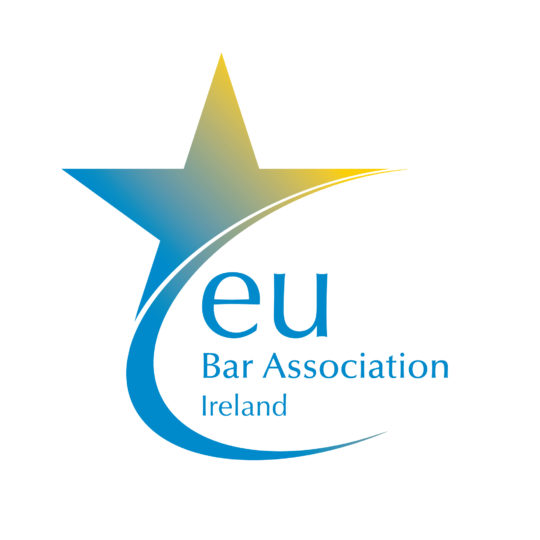
David Leonard BL
A recent UK Supreme Court ruling against Bloomberg makes it more difficult for media outlets to publish information in the UK about individuals under criminal investigation.
David Leonard BL examines the judgment & considers the Irish law in this area.
In Bloomberg LP v. ZXC [2022] UKSC 5, the Court held that in general, a person under criminal investigation has, prior to being charged, a reasonable expectation of privacy in respect of information relating to that investigation.
The Court pointed out that this is a legitimate starting point, but that the facts of a specific case will ultimately determine whether that expectation of privacy arises. It would seem that this issue hasn’t yet arisen for determination before the Irish courts, but it may well do so in due course.
Once a person is charged with a criminal offence, he or she can have no reasonable expectation of privacy. That was emphasised by the Court in Bloomberg LP v. ZXC. Therefore, the principle established in the judgment benefits people who are subject to criminal investigation but who are not then charged with any criminal offence.
Information from a formal investigation vs. journalistic investigation
At para. 78 of the ZXC judgment (given jointly by Lord Hamblen and Lord Stephens), it was emphasised that the appeal was confined to the impact of information derived from an investigation of a person by an organ of the state rather than the distinct and separate situation that might arise if Bloomberg wished to publish information as to the results of its own investigations.
The case is the latest in a series of judgments that have strengthened UK privacy law
This was a case involving the tort of misuse of private information, which the English courts have fashioned as a tort to protect aspects of the right to respect for private life under Article 8 European Convention on Human Rights involving disclosure of private information. The decision is the latest and most important in a series of judgments that have strengthened privacy law in the UK.
In Richard v. British Broadcasting Corpn [2019] Ch 169, Cliff Richard obtained general (including aggravated) damages in the sum of £210,000 against the BBC in respect of it being revealed that he was the subject of an investigation into historic-sex-offence allegations. No charge was ever brought and the claims were later dismissed as false.
The Irish arena
In Ireland, a plaintiff can bring an action seeking damages for breach of the constitutional right to privacy, which is a qualified and not an absolute right. A recent example of a case where a plaintiff successfully brought such an action is Nolan v. Sunday Newspapers Ltd. [2019] IECA 141, [2020] 2 I.R. 490. In that case, as well as recovering damages for defamation, the plaintiff was awarded €50,000 damages for breach of his constitutional right to privacy. The breach of privacy was in respect of photographs of him taken at swingers’ parties in private houses published by a newspaper without his consent.
The right to privacy is one of the personal rights guaranteed by, though not specifically mentioned in, the Constitution. This is clear from cases such as Kennedy v. Ireland [1987] I.R. 587. Because of the constitutional protection given to privacy rights in this jurisdiction, there hasn’t been a need for Irish courts to interpret our rules of tort law in accordance with the State’s obligations under Article 8 ECHR.
In theory, that could be an option under s. 2 of the European Convention on Human Rights Act 2003, although it is difficult to envisage circumstances in which that would be necessary. Our constitutional tort by means of which damages may be sought for breach of the right to privacy may well be wider than the English tort of misuse of private information: see para. 44 of Carey v. Independent News & Media plc [2021] IEHC 229, a judgment on a discovery application in the context of proceedings claiming damages for breach of the plaintiff’s right to privacy and confidentiality. The Carey case relates to the publication of a series of articles concerning an investigation by the Garda Síochána into allegations of child sexual abuse against a person where the DPP ultimately directed that no charges be brought.
In general, suspects are not named by the Garda Síochána unless and until they are charged with a criminal offence. Certain provisions of primary and secondary legislation are consistent with this approach.
- Section 62(1) of the Garda Síochána Act 2005 (“2005 Act”) makes it a criminal offence for a current or former member of the Garda Síochána or its civilian staff or otherwise working for the Garda Síochána to disclose any information obtained in the course of carrying out duties or office where the person knows the disclosure of that information is likely to have a harmful effect.
The section details exhaustively what types of disclosure will have a harmful effect. Under s. 62(2)(h), one instance of having a harmful effect is where the disclosure “results in the publication of personal information and constitutes an unwarranted and serious infringement of a person’s right to privacy”.
- Para. 7 of the schedule to the Garda Síochána (Discipline) Regulations 2007 (S.I. No. 214 of 2007) (“the 2007 Regulations”) lists as a breach of discipline “Breach of confidence”, which is defined as “making an unauthorised communication in relation to any information which comes to the member’s knowledge in the course of his or her duties and was not available to members of the public.” In many—but not all—cases, it would be a breach of confidence for a member of the Garda Síochána to publish or communicate to the media information that a specific person is under investigation.
It is likely that, in most cases, information disclosed to a third party in circumstances that violated s. 62 of the 2005 Act or that constituted a breach of confidence under the 2007 Regulations would be information that would be held to be private for the purpose of a constitutional action for breach of privacy taken by a suspect identified in a subsequent publication who is never charged with an offence.
It would seem reasonably likely that the Irish courts would find that people not charged with an offence could, in many cases, resort to the constitutional action to seek damages if information about their being under criminal investigation were published.
The views expressed above are the author’s own and do not reflect the views of The Bar of Ireland.
Discover our Specialist Bars

The EU Bar Association is a specialist bar association for Irish barristers who practise in the area of EU Law. It was established in December 2016 with the purpose of providing a forum for barristers who practise or possess expertise in the area of EU law or who would wish to develop such practice or expertise.
The views expressed above are the author’s own and do not reflect the views of The Bar of Ireland.